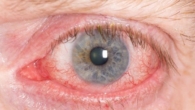
2 changes in eating habits that indicate dementia
0
The patient may also experience changes in their sleep habits, such as sleeping more or less than usual.
Dementia is a syndrome associated with progressive deterioration of the brain. It usually affects memory and behavior. Although there is no cure, there are treatments that can help relieve symptoms.
Therefore, it is important to identify symptoms in a loved one as early as possible. Because the risk of dementia increases with age, many people tend to focus on memory problems first.
Changes in appetite can signal dementia. Eating more or less than usual or losing interest in food are symptoms to look out for.
Other symptoms
There are several symptoms of dementia to look out for in an elderly family member. Memory loss — difficulty remembering recently learned information or events, forgetting the names of people or familiar places. Communication difficulties — difficulty finding the right words, difficulty following or joining in on a conversation.
Disorientation — getting lost in familiar places, not knowing what day it is or what time of year it is. Mood or behavior changes — mood swings, anxiety, paranoia, or aggression. Task problems – trouble planning or carrying out familiar tasks, such as getting dressed or cooking.
There are also lesser-known symptoms of dementia that you should be aware of.
Changes in sleep patterns – sleeping more or less than usual, sleep disturbances. Changes in personal hygiene – neglecting personal hygiene, such as not bathing or brushing your teeth. Changes in mobility – difficulty walking or climbing stairs, tremors or clumsiness.









Leave a Reply